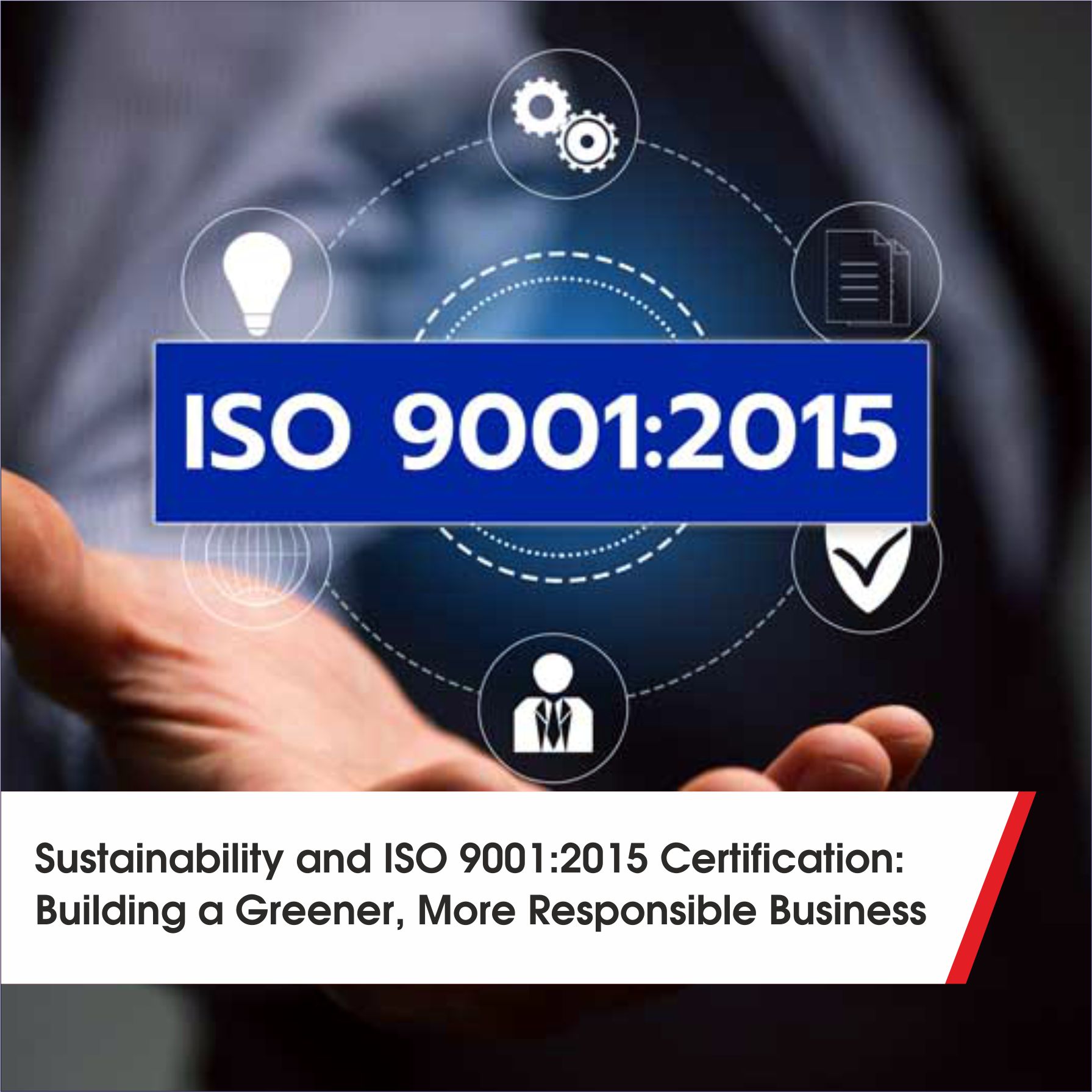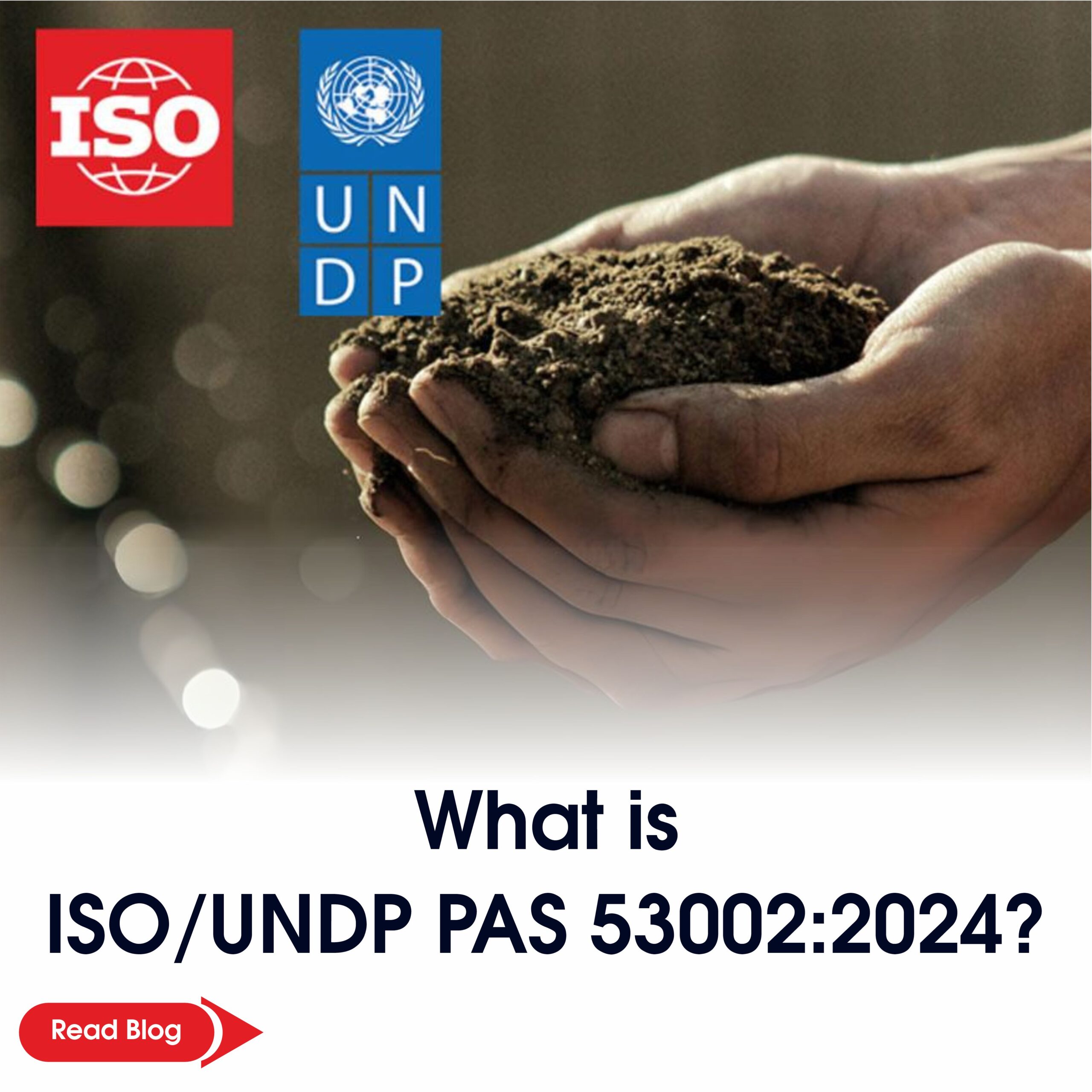Sustainability has merged into business practices in today’s age of rapid change. ISO 9001 outlines guidelines for integrating sustainability into business operations. Moreover, it is an international standard for Quality Management Systems QMS). In this blog, we will examine the connection between sustainability and ISO 9001, outlining the actions that companies may take to create organisations that are more ethical and sustainable.
What is ISO 9001 Certification?
ISO 9001 is a standard for Quality Management System (QMS). The primary focus of the 9001 is enhancing customer satisfaction and operational efficiency. Moreover, it provides a solid foundation for integrating sustainability practices within the organisation. ISO 9001 standard encourages organisations to consider the needs and expectations of all stakeholders, including customers, suppliers, employees, and the wider community. It engages with stakeholders and organisations to identify sustainability initiatives that align with their values and address the concerns of the various parties involved.
ISO 9001 emphasizes the significance of establishing sustainability objectives and setting specific goals. It focuses on increasing resource efficiency, waste reduction, carbon footprint reduction, and other environmental and social factors.
Integrating ISO 9001 Certification with Sustainability ⮯
ISO 9001 guides integrating sustainability into existing processes. Here are some significant steps for building a greener and more responsible business:-
- Conducting a Sustainability Assessment: Organisations should assess their current environmental impact and identify areas for improvement. Moreover, this may involve measuring energy consumption, carbon emissions, waste generation, and water usage. By understanding their environmental footprint, businesses can make informed decisions about sustainability targets and initiatives.
- Developing a SustainabilityPolicy: A sustainability policy outlines the organisation’s commitment to sustainable practices. It should include measurable objectives, targets, and a roadmap for achieving sustainability goals. The organisation must communicate policies with all employees and stakeholders to ensure widespread awareness and participation.
- Engaging Employees: Employees play a significant role in driving sustainability initiatives. Organisations should provide training on sustainability practices and encourage employee involvement in identifying opportunities for improvement. By engaging employees, businesses can cultivate a culture of sustainability where everyone feels responsible for environmental and social impacts.
- Supplier Engagement: Organisations should collaborate with suppliers to promote sustainable sourcing and procurement practices. Moreover, this can involve setting sustainability criteria for supplier selection, conducting audits to ensure compliance with environmental standards, and encouraging suppliers to adopt sustainable practices.
- Monitoring and Measurement: ISO 9001 emphasises the importance of data-driven decision-making. Businesses should establish monitoring systems to track progress towards sustainability goals. Regular audits and performance assessments can help identify areas of improvement.
Benefits of Building a Greener Business ⮯
Adopting sustainable practices in line with ISO 9001 brings numerous benefits to organisations. The following are the benefits of integrating ISO 9001 with sustainability:-
- Increases Reputation: A commitment to sustainability can improve a company’s reputation, attracting environmentally conscious customers and investors who align with the organisation’s values.
- Cost Savings: Implementing resource-efficient practices can lead to cost savings as it reduces energy consumption, waste generation, and optimised processes.
- Regulatory Compliance: Many countries have introduced regulations and incentives to encourage sustainability. Organisations can apply for ISO 9001 standards and incorporate sustainability to ensure compliance with relevant laws and regulations.
- Employee Engagement and Retention: Employees are more likely to be engaged and motivated when working in sustainable organisations. It demonstrates a commitment to sustainability to attract and retain talented individuals.
Conclusion ✅
ISO 9001 is a powerful tool for companies seeking to build greener, more responsible businesses to improve their environmental performance. Moreover, by integrating sustainability practices into their quality management systems, organisations can enhance their reputation and contribute to a more sustainable future.




